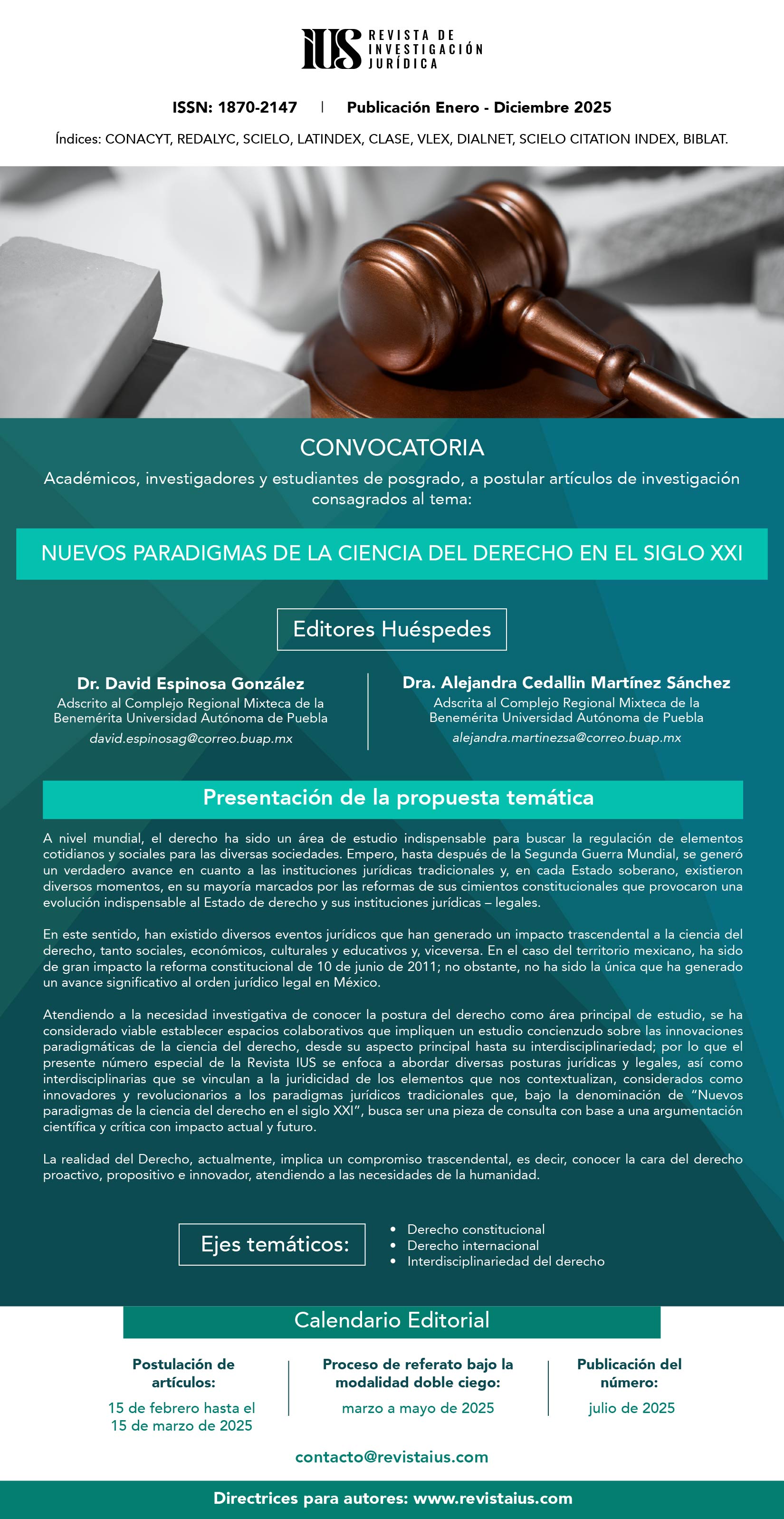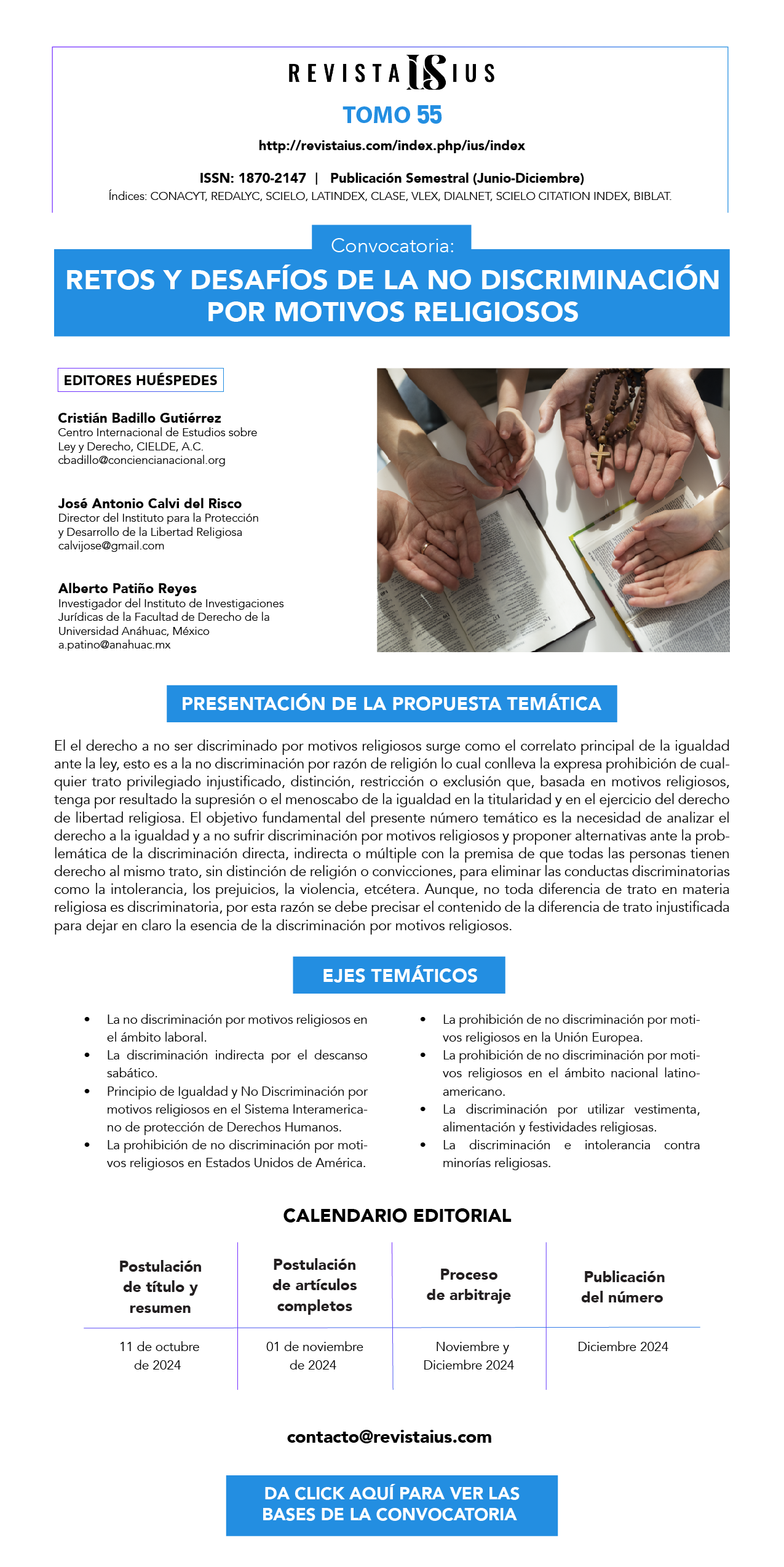Advances In Filiative Matters: Multiparentality and the Relationship with the Rights of Children and Adolescents
DOI:
https://doi.org/10.35487/rius.v17i52.2023.935Abstract
The family as a legal unit is of the utmost importance and requires legal protection as time progresses. As- sisted human reproduction techniques, marriage and homoparental adoption, among other factors, have been changing the paradigm of the bilateral filiative bond of both motherhood and fatherhood as it is known, is all give rise to plural filiation ties, known as family multiparentality. It is imperative and, at the same time, a challenge for the Chilean legislation to determine the consequences that will derive from these new links in attention to the obligations that are born for the members of the family and that make up the family statute, that is why, in this work, it will address the recognition that has been given to these forms of affiliation in different legislations; how these realities combine with the safeguarding and protection of the rights of children and adolescents and the place that they will have in Chilean legislation, always safe- guarding the best interests of children and adolescents and their right to identity.
Downloads
Downloads
Published
Issue
Section
License

This work is licensed under a Creative Commons Attribution-NonCommercial-ShareAlike 4.0 International License.
Revista IUS, published by the Legal Sciences Institute of Puebla A.C., is distributed under the Creative Commons Attribution-NonCommercial 4.0 International (CC BY-NC 4.0) license.
We authorize collaborators to upload a copy of their published work on their personal websites or any Open Access repository, provided that Revista IUS is specifically cited as the original source, indicating the year and issue of the respective example and adding the link to the webpage on which this publication can be freely consulted in toto and without charge: http://www.revistaius.com
Readers are free to:
Share, copy and redistribute the material via any medium or format.
The licensor cannot revoke these freedoms as long as you follow the license terms.
Under the following terms:
Attribution: You must give appropriate credit, provide a link to the license, and indicate if changes were made.
You may do so in any reasonable manner, but not in any way that suggests the licensor endorses you or your use.
NonCommercial – You may not use the material for commercial purposes.
If you remix, transform or build upon the licensed material, its distribution is not permitted.
Charges for managing articles: Revista IUS will not charge for receiving, processing or publishing articles (Article Processing Charge, or APC) submitted by authors.





